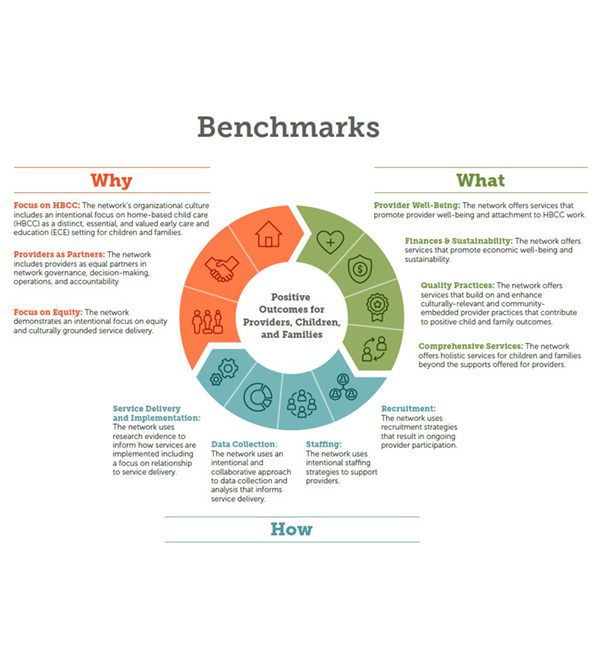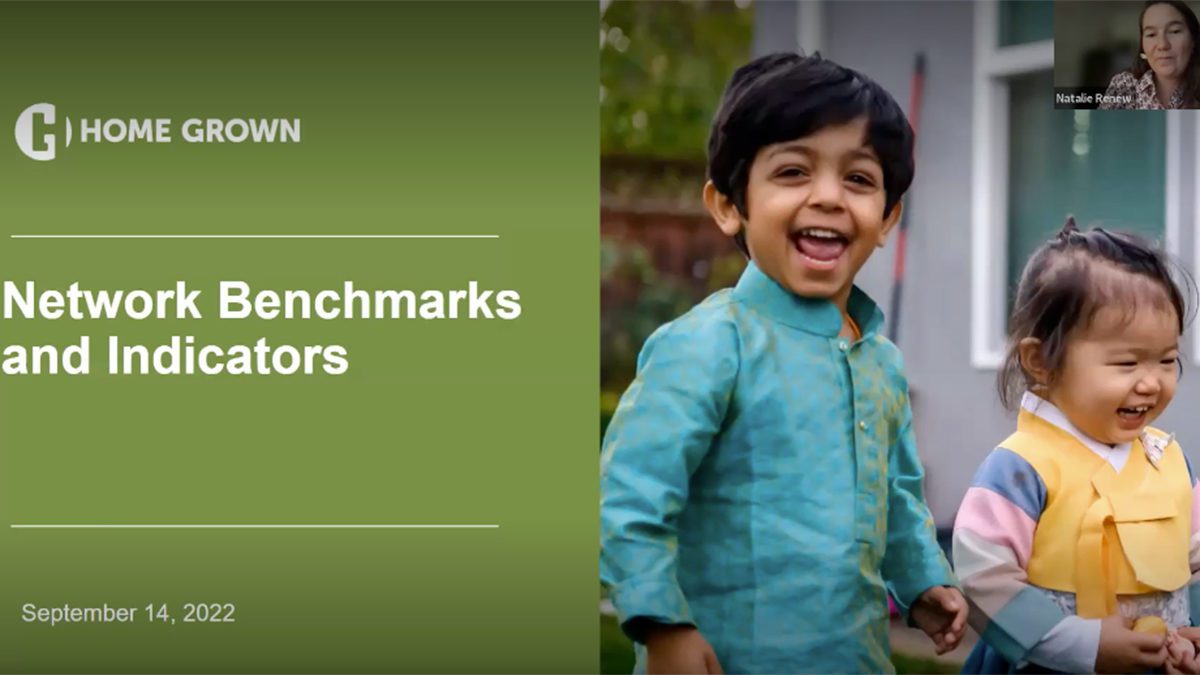Erikson Institute’s home-based child care research team is partnering with Home Grown to evaluate their Building Comprehensive Networks initiative and to develop evidence-based resources for the field on promising practices around network development and implementation.
This project is funded by Home Grown, in coordination with their Building Comprehensive Networks initiative.
See more research from Erikson Institute on Family Child Care Networks
This brief describes 11 quality benchmarks for home-based child care networks. The benchmarks and related indicators articulate standards and operations based on evidence from research and practice. Together, the benchmarks and indicators represent a picture of what a high-quality network strategy can look like.
DOWNLOAD THE BENCHMARKS & INDICATORS
This brief presents findings from a targeted literature review on home-based child care (HBCC) networks that support HBCC providers, including regulated family child care (FCC) providers, and/or family, friend, and neighbor (FFN) providers who are legally-exempt from regulation. The review was conducted to inform the development of the set of benchmarks and indicators for HBCC networks that are described in the companion framework above.
On Wednesday, September 14th at 3:00-4:00 Eastern (12:00-1:00 Pacific) Home Grown and the Erikson Institute hosted a session on the newly released Network Benchmarks and Indicators. Together, the benchmarks and indicators represent a picture of what a high-quality network strategy can look like. In this session we explored the 11 quality benchmarks, their development from research and best practice, and potential use cases for administrators, funders, network staff, and supporting organizations.
Panelists for this discussion include:
The Toolkit includes tools that you can use to collect data to assess your network’s progress towards meeting your goals. It is divided into six areas for evaluation: 1) implementation; 2) provider outcomes; 3) quality outcomes; 4) sustainability outcomes; 5) child outcomes; and 6) family outcomes. Each category includes links to relevant instruments and resources.

Join the Erikson family with monthly news + events updates shared by academics, community members, and families.
